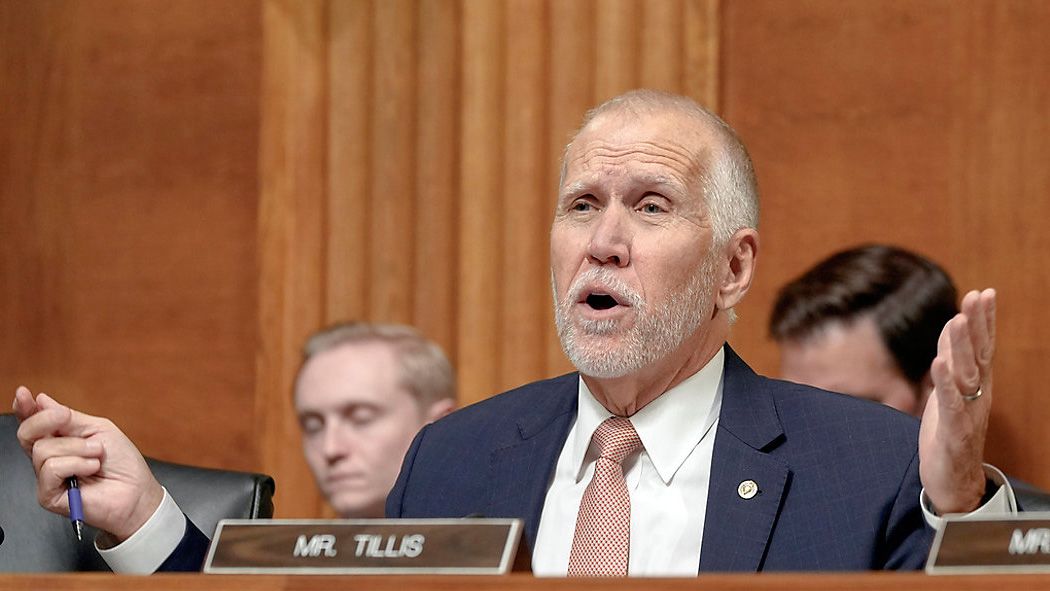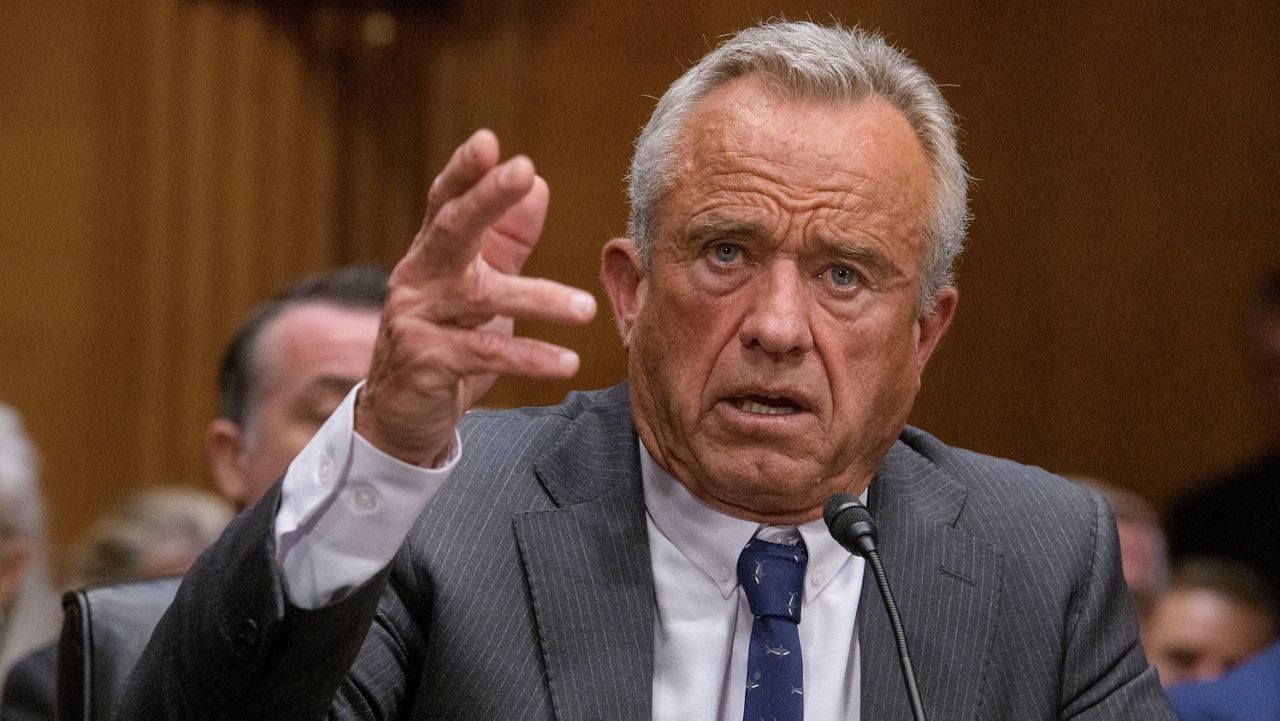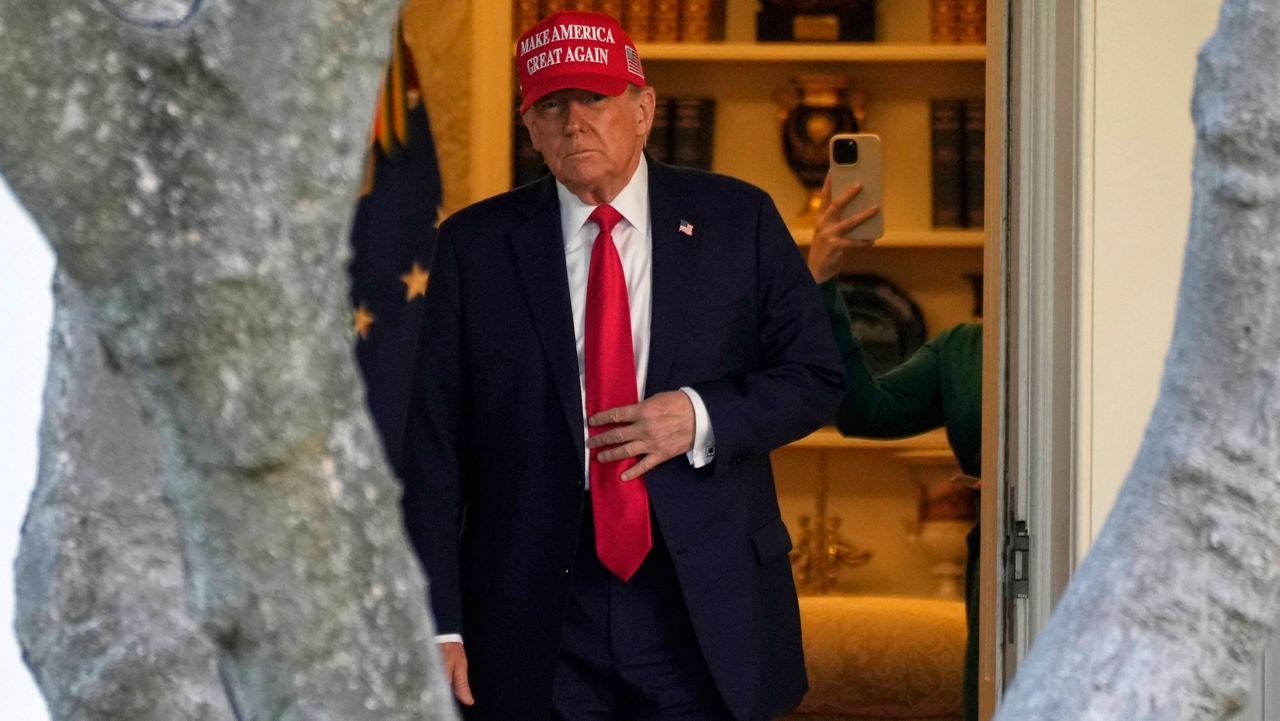Former Sen. Richard Burr, R-N.C., says he plans to vote for former President Donald Trump this November, even though he voted to convict Trump at his second impeachment trial.
Spectrum News spoke with Burr in July at the historic Monocle Restaurant near the Capitol, where he spent a decade in the House and 18 years in the Senate before declining to run for re-election two years ago. It was his first television interview in years.
“There’s a period of time that you’re a contributor, and when you’re no longer a contributor, it’s time to get out and let somebody else do it,” Burr said. “And I think my timing was pretty good.”
Trump’s second impeachment trial, which was held in early 2021, ended up isolating Burr from a large part of the Republican Party.
The House voted to impeach Trump for inciting the insurrection at the Capitol on Jan. 6. Burr was one of just seven Republican senators who voted against Trump, 10 short of the number needed to convict him.
“My vote on the president wasn’t on anything the House presented… it was on the fact that I thought that the president leaving the vice president, without surging to Capitol Hill a protective detail, to take a vice president with a nuclear football, and to make him secure was a breach of office,” Burr said.
Burr told Spectrum News he didn’t tell his colleagues before he voted.
“I think some were shocked. I think some might have voted a different way if I had told them. Very possibly. Very possibly,” Burr said.
After the vote, the North Carolina GOP voted to censure him because he was labeled a RINO (Republican in Name Only).
“My wife would tell you it was relief because I no longer had to travel around the state speaking to Republican groups. I could go sort of do my thing. And that’s what I did,” Burr said.
Despite Burr’s tense relationship with his party, he still identifies as a Republican and plans to vote for Trump in November.
“Maybe someone will have a hard time squaring with it. I don’t have a hard time squaring with it because I firmly understood why I voted for impeachment. And l like I said, that’s not a disqualifier as to whether you can serve. It’s a bad choice I thought a president made one time,” Burr said.
Asked if there was a contradiction between planning to vote for Trump and voting to convict him, which would have barred Trump from running again, Burr said his decision to convict wasn’t an attempt to disqualify but rather a response to Trump’s actions on Jan. 6.
A lot of his time in the Senate was focused on health care and issues of national security. He had a critical role on the Senate Intelligence Committee when it found Russia interfered in the 2016 presidential election.
“It continues from Russia, it’s very aggressive from China and it’s overly aggressive from Iran right now. That’s straight out of the mouths of the DNI in a report this week so I’m not reporting anything that’s not public. It’s something we need to be concerned with,” Burr said.
Burr worked closely with the panel’s senior Democratic Virginia Sen. Mark Warner.
The committee was praised for its bipartisanship, which is a word that became synonymous with Burr, especially in the later part of his career.
He voted for the Bipartisan Safer Communities Act, the first piece of gun legislation to pass Congress in decades, the Bipartisan Infrastructure Law and the CHIPS and Science Act.
“Senator Helms used to look at me and say, 'you’re more Conservative than I am.' I relish back to those comments,” Burr said. “I think as we age, we all start to look at things through a different frame.”
Burr recounted a vote he once took on gay individuals serving in the military.
“My colleagues looked at me and said, ‘what are you doing?’ And I said, ‘you know, my kids at home said I was crazy. Why would I be against this? They’re with this every day of their lives,'” Burr said. “I realized you have to consider the feelings of the next generation and the next generation. I mellowed in part because I saw things differently, but I also understood more the responsibly I had as a member [of Congress], that we have to get things done.”
Burr, who still lives in North Carolina but works as a policy advisor for a law firm in D.C., is the first tell you Democrats are needed to get anything done in Congress. It's a lesson for an institution plagued in division.
“30 years ago, when I would come home from Washington, and if somebody asked me what we did that week, and I said nothing, they cheered. And now, all of a sudden, we are consumed with what Washington hasn’t done, and that’s a big reversal in 30 years,” Burr said. “But it tells us we got a lot of work to do. And what America want us to do is return to a period we don’t need Washington to do something.”









